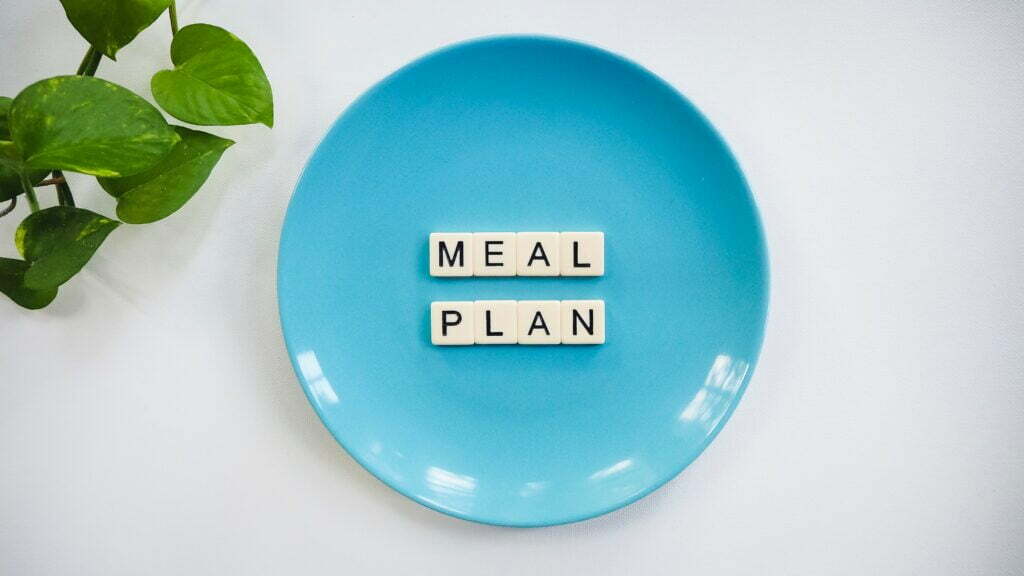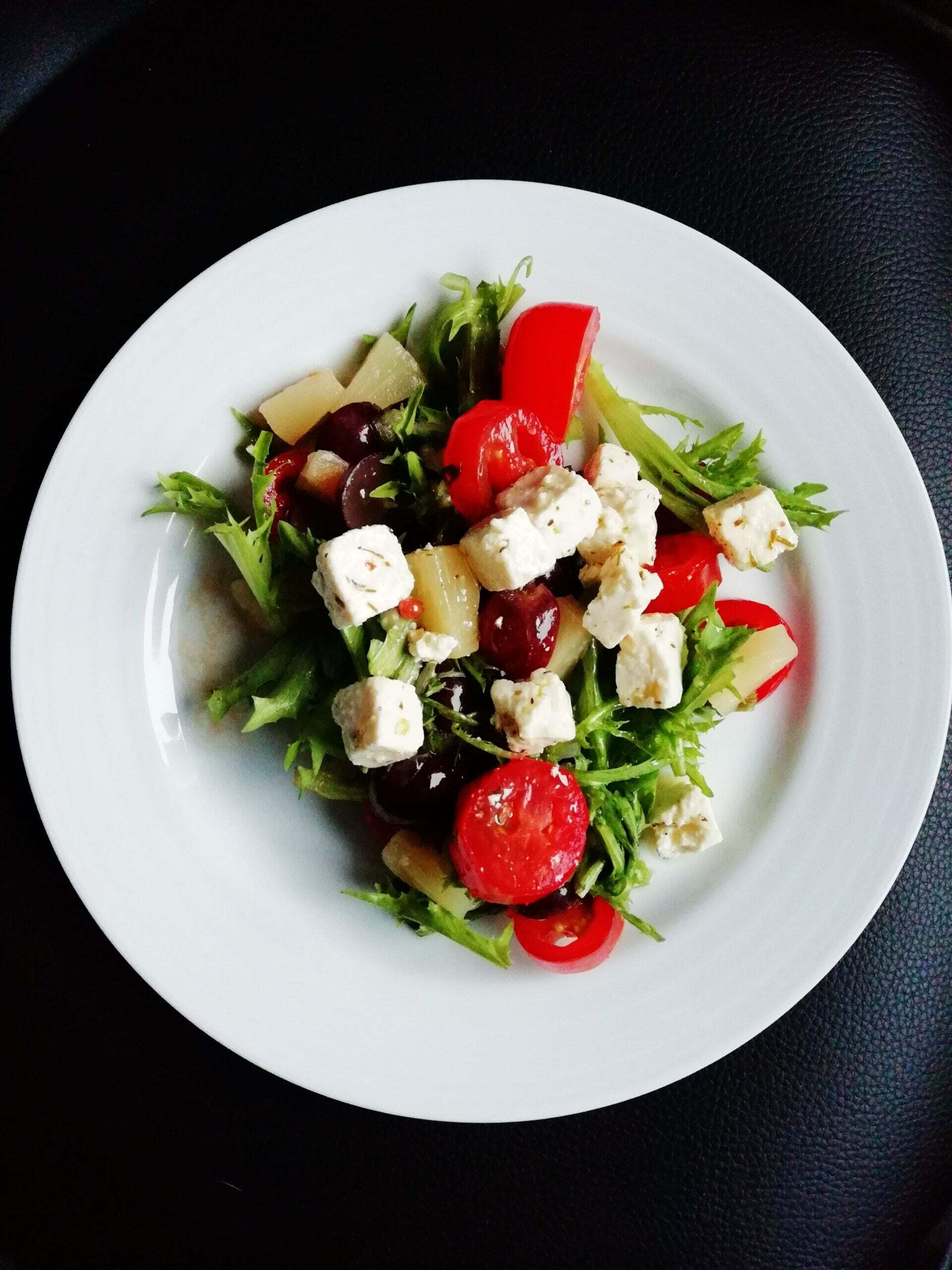This article will take you over a good understanding of What is Mediterranean Diet, Its Dos, and Don’ts, with a sample meal plan at the end of the article to help understand it even better.
Researchers originally got interested in the Mediterranean diet in the 1950s, when some people in the Mediterranean Sea basin were shown to have superior general health, lower incidence of cardiovascular and metabolic disorders, and higher lifespan than wealthy Western nations. Thus, the diet refers to the traditional culinary traditions of the Mediterranean Sea’s surrounding nations, which include Greece, Italy, Spain, Morocco, Egypt, and Lebanon. Fruits and vegetables, whole grains, seafood, nuts and legumes, and olive oil are all staples of the Mediterranean diet. Poultry, eggs, cheese, and dairy are consumed in smaller quantities. The Mediterranean diet is emphasized as a “healthy dietary pattern” in the Dietary Guidelines for Americans (DGA). 1 However, unlike many fad diets, this one stresses eating nutrient-dense meals rather than tracking calories or altogether avoiding any one food type.
Furthermore, the Mediterranean diet covers more than simply food; as a result, it is sometimes referred to be a way of life. People in Mediterranean areas have traditionally prioritized physical exercise, social gatherings, and leisure, as well as moderate use of wine with meals. In the United States, moderate alcohol consumption is defined as two drinks or less per day for males and one drink or fewer per day for women. One drink equals one and a half ounces of 80 proof (or 40%) distilled spirits/liquor, five ounces of 13% alcohol wine, or 12 ounces of 5% alcohol beer.
Potential Benefits of the Mediterranean Diet
Brain Function

Several studies indicate that the Mediterranean diet may be good for brain health and may even guard against cognitive loss as you age. One research, for example, indicated that increased adherence to the Mediterranean diet was related to enhanced memory and decreases in numerous risk variables for Alzheimer’s disease in 512 persons.
Other studies have linked the Mediterranean diet to a decreased risk of dementia, cognitive impairment, and Alzheimer’s disease (12Trusted Source). Furthermore, one big review found that eating the Mediterranean diet improved cognitive function, memory, attention, and processing speed in healthy older persons.
Healthy Blood Sugar Levels

The Mediterranean diet promotes a wide range of nutrient-dense foods, such as fruits and vegetables, nuts and seeds, whole grains, and heart-healthy fats. As a result, adhering to this eating pattern may aid in the stabilization of blood sugar levels and the prevention of type 2 diabetes. Interestingly, several studies have discovered that the Mediterranean diet can lower fasting blood sugar levels and enhance hemoglobin A1C levels, a marker used to assess long-term blood sugar control.
The Mediterranean diet has also been demonstrated to reduce insulin resistance, a condition in which the body’s capacity to use insulin to efficiently manage blood sugar levels is impaired.
Heart Health

The Mediterranean diet has been thoroughly researched in terms of its capacity to boost heart health. Indeed, evidence suggests that the Mediterranean diet may be associated with a decreased risk of heart disease and stroke. One research compared the Mediterranean diet to a low-fat diet and found that the Mediterranean diet was more successful at slowing the advancement of plaque formation in the arteries, which is a key risk factor for heart disease. Another study indicates that the Mediterranean diet may help reduce diastolic and systolic blood pressure levels, so supporting heart health.
Weight loss

The Mediterranean diet may also be beneficial to those attempting to reduce weight.
According to the authors of a 2016 analysis, those who were overweight or obese lost more weight on the Mediterranean diet than on a low-fat diet. The Mediterranean diet group’s outcomes were comparable to those of people on other typical weight loss regimens.
Mediterranean Diet Food List: What to Eat and Avoid
The exact ingredients that constitute the Mediterranean diet are debatable, mainly due to regional differences.
Most studies looked at a diet high in nutritious plant foods and low in animal products and meat. However, eating fish and seafood at least twice a week is suggested.
The Mediterranean way of life also includes frequent physical activity, sharing meals with others, and reducing stress.
You may blend fresh, frozen, dry, and canned fruits and vegetables into your diet, but be sure to read the package labels for extra sugar and salt.
Ideally, you should base your diet on the following nutritious Mediterranean foods:
Vegetables
Instead of sausage and pepperoni, try a simple plate of sliced tomatoes drizzled with olive oil and crumbled feta cheese, or stack your thin crust pizza with peppers and mushrooms. Salads, soups, and crudité platters are all excellent sources of veggies. You may also add broccoli, kale, spinach, onions, cauliflower, carrots, Brussels sprouts, cucumbers, potatoes, sweet potatoes, and turnips.
Fruits
Choose strawberries, fresh figs, grapes, apples, bananas, oranges, pears, dates, figs, melons, or peaches instead of ice cream, cake, or other baked products.
Eat seafood twice a week
Fish high in omega-3 fatty acids include tuna, salmon, herring, sablefish (black cod), and sardines, while shellfish such as mussels, oysters, and clams provide similar advantages for brain and heart health.
Use good fats
Almonds, walnuts, macadamia nuts, hazelnuts, cashews, sunflower seeds, pumpkin seeds, almond butter, and peanut butter are some of the healthy fats.
Never Miss Breakfast
Fruit, whole grains, and other fiber-rich foods are a great way to start your day, keeping you pleasantly full for hours.
Whole grains
Oats, brown rice, rye, barley, corn, buckwheat, whole wheat bread, and pasta
Enjoy dairy products in moderation
The United States Department of Agriculture (USDA) recommends limiting saturated fat to no more than 10% of daily calories (about 200 calories for most people). That means you can still eat dairy products like natural (unprocessed) cheese and Greek or plain yogurt.
Spices and Herbs
Garlic, basil, mint, rosemary, sage, nutmeg, cinnamon, pepper
Food To Avoid in Mediterranean Diet
While the Mediterranean diet is not a strict diet plan, foods that are generally not allowed on the Mediterranean diet include:
- Processed Red Meats – Red meat, such as steak, should be avoided in the Mediterranean diet. What about red meat products like hot dogs and bacon? You should avoid or restrict these foods as much as possible. According to research published in the BMJ, consuming red meat on a frequent basis, particularly processed types, was linked to an increased risk of mortality.
- Refined grains: white bread, pasta, tortillas, chips, crackers
- Refined oils: soybean oil, canola oil, cottonseed oil, grapeseed oil
- Trans fats: found in margarine, fried foods, and other processed foods
- Added sugar: added sugar is found in many foods but is especially high in soda, candies, ice cream, table sugar, syrup, and baked goods
- Highly processed foods: fast food, convenience meals, microwave popcorn, granola bars
A 7-day Sample Mediterranean Diet Plan For You

To get an idea of what eating on a Mediterranean diet looks like, check out this week’s worth of sample meals:
Day 1
Breakfast Greek yogurt topped with berries and a drizzle of honey
Snack a Handful of almonds
Lunch Tuna on a bed of greens with a vinaigrette made with olive oil
Snack a Small bowl of olives
Dinner Small chicken breast over a warm grain salad made with sautéed zucchini, tomato, and farro
Day 2
Breakfast Whole-grain toast with a soft-boiled egg and a piece of fruit
Snack a Handful of pistachios
Lunch Lentil salad with roasted red peppers, sun-dried tomatoes, capers, and an olive oil-based vinaigrette
Snack Hummus with dipping veggies
Dinner Salmon with quinoa and sautéed garlicky greens
Day 3
Breakfast Whipped ricotta topped with walnuts and fruit
Snack Roasted chickpeas
Lunch Tabouli salad with whole-grain pita and hummus
Snack Caprese skewers
Dinner Roasted chicken, gnocchi, and a large salad with vinaigrette
Day 4
Breakfast Fruit with a couple of slices of Brie
Snack Cashews and dried fruit
Lunch Lentil soup with whole-grain roll
Snack Tasting plate with olives, a couple of slices of cheese, cucumbers, and cherry tomatoes
Dinner White fish cooked in olive oil and garlic, spiralized zucchini, and a sweet potato
Day 5
Breakfast Omelet made with tomatoes, fresh herbs, and olives
Snack A couple of dates stuffed with almond butter
Lunch A salad topped with white beans, veggies, olives, and a small piece of chicken
Snack A peach and plain Greek yogurt
Dinner Grilled shrimp skewers with roasted Brussels sprouts
Day 6
Breakfast Eggs scrambled with veggies and chives and topped with feta with a slice of whole-grain bread
Snack Greek yogurt
Lunch A quinoa bowl topped with sliced chicken, feta, and veggies
Snack Hummus with veggies
Dinner Grilled seafood, roasted fennel and broccoli, arugula salad, and quinoa
Day 7
Breakfast Veggie frittata
Snack a Handful of berries
Lunch A plate of smoked salmon, capers, lemon, whole-grain crackers, and raw veggies
Snack Mashed avocado with lemon and salt, with cucumbers for dipping
Dinner Pasta with red sauce and mussels
In Conclusion
A Mediterranean diet requires long-term, sustainable dietary modifications.
In general, a person should strive for a diet rich in natural foods, such as plenty of veggies, whole grains, and healthy fats.
Anyone who does not feel satisfied with their food should consult a dietician. They might suggest extra or different foods to assist promote fullness.

